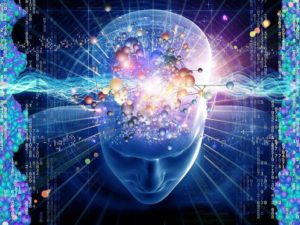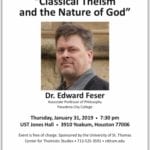On The Nature of True Liberty (16-18)
It’s been while since an installment of the famous encyclical by Leo XIII “Libertas Praestantissimum. You will remember that the Pontiff was talking about the difference between human reason and eternal reason and the problem with holding human reason as the sole orbiter of truth rather than a tool to discover. The lower must be subject to the higher…however in most modern viewpoints, the concept of hierarchy is something of entirely human invention and cannot apply to ontology. We pickup at 16 with my comments in blue and emphasis in bold:
16. Moreover, besides this, a doctrine of such character is most hurtful both to individuals and to the State. For, once ascribe to human reason the only authority to decide what is true and what is good, and the real distinction between good and evil is destroyed [It plays a part nn Thomistic thought, but the human reason does not discover what is good independently and on its own. And it does discover, not create what is good or evil. When the human reason is severed from the practical reason and the other indicators, it cannot help but arbitrate good and evil. If there are any Thomistic scholars reading, feel free to comment on this…]; honor and dishonor differ not in their nature, but in the opinion and judgment of each one; pleasure is the measure of what is lawful; and, given a code of morality which can have little or no power to restrain or quiet the unruly propensities of man, a way is naturally opened to universal corruption. With reference also to public affairs: authority is severed from the true and natural principle whence it derives all its efficacy for the common good; and the law determining what it is right to do and avoid doing is at the mercy of a majority. [A deed isn’t actually right or wrong in itself, it is determined so by the masses] Now, this is simply a road leading straight to tyranny. The empire of God over man and civil society once repudiated, it follows that religion, as a public institution, can have no claim to exist, and that everything that belongs to religion will be treated with complete indifference. [Welcome to the United States of America my friends. Solve the problem by getting rid of the disagreement–It worked, but its not the best.] Furthermore, with ambitious designs on sovereignty, tumult and sedition will be common amongst the people; and when duty and conscience cease to appeal to them, there will be nothing to hold them back but force, which of itself alone is powerless to keep their covetousness in check. Of this we have almost daily evidence in the conflict with socialists and members of other seditious societies, who labor unceasingly to bring about revolution. It is for those, then, who are capable of forming a just estimate of things to decide whether such doctrines promote that true liberty which alone is worthy of man, or rather, pervert and destroy it.
17. There are, indeed, some adherents of liberalism who do not subscribe to these opinions, which we have seen to be fearful in their enormity, openly opposed to the truth, and the cause of most terrible evils. Indeed, very many amongst them, compelled by the force of truth, do not hesitate to admit that such liberty is vicious, nay, is simple license, whenever intemperate in its claims, to the neglect of truth and justice; and therefore they would have liberty ruled and directed by right reason, and consequently subject to the natural law and to the divine eternal law. But here they think they may stop, holding that man as a free being is bound by no law of God except such as He makes known to us through our natural reason. In this they are plainly inconsistent. For if – as they must admit, and no one can rightly deny – the will of the Divine Law-giver is to be obeyed, because every man is under the power of God, and tends toward Him as his end, it follows that no one can assign limits to His legislative authority without failing in the obedience which is due. Indeed, if the human mind be so presumptuous as to define the nature and extent of God’s rights and its own duties, reverence for the divine law will be apparent rather than real, and arbitrary judgment will prevail over the authority and providence of God. Man must, therefore, take his standard of a loyal and religious life from the eternal law; and from all and every one of those laws which God, in His infinite wisdom and power, has been pleased to enact, and to make known to us by such clear and unmistakable signs as to leave no room for doubt. And the more so because laws of this kind have the same origin, the same author, as the eternal law, are absolutely in accordance with right reason, and perfect the natural law. These laws it is that embody the government of God, who graciously guides and directs the intellect and the will of man lest these fall into error. Let, then, that continue to remain in a holy and inviolable union which neither can nor should be separated; and in all things-for this is the dictate of right reason itself-let God be dutifully and obediently served.
18. There are others, somewhat more moderate though not more consistent, who affirm that the morality of individuals is to be guided by the divine law, but not the morality of the State, for that in public affairs the commands of God may be passed over, and may be entirely disregarded in the framing of laws. [Enter Nancy Pelosi and Joe Biden–The state has no authority to tell individuals what to do…the individuals must learn for themselves] Hence follows the fatal theory of the need of separation between Church and State. But the absurdity of such a position is manifest. [1] Nature herself proclaims the necessity of the State providing means and opportunities whereby the community may be enabled to live properly, that is to say, according to the laws of God. For, since God is the source of all goodness and justice, it is absolutely ridiculous that the State should pay no attention to these laws or render them abortive by contrary enact menu. [2] Besides, those who are in authority owe it to the commonwealth not only to provide for its external well-being and the conveniences of life, but still more to consult the welfare of men’s souls in the wisdom of their legislation. But, for the increase of such benefits, nothing more suitable can be conceived than the laws which have God for their author; and, therefore, they who in their government of the State take no account of these laws abuse political power by causing it to deviate from its proper end and from what nature itself prescribes. [3] And, what is still more important, and what We have more than once pointed out, although the civil authority has not the same proximate end as the spiritual, nor proceeds on the same lines, nevertheless in the exercise of their separate powers they must occasionally meet. For their subjects are the same, and not infrequently they deal with the same objects, though in different ways. Whenever this occurs, since a state of conflict is absurd and manifestly repugnant to the most wise ordinance of God, there must necessarily exist some order or mode of procedure to remove the occasions of difference and contention, and to secure harmony in all things. This harmony has been not inaptly compared to that which exists between the body and the soul for the well-being of both one and the other, the separation of which brings irremediable harm to the body, since it extinguishes its very life.
Though at this point this idea is very foreign to us today, especially in the United States, the state has a responsibility to ensure that the society lives according to eternal law. Says who? God. When a system of government is established, there is an organization made up of individuals making decisions on behalf of individuals…this new entity is also subject to eternal law.




